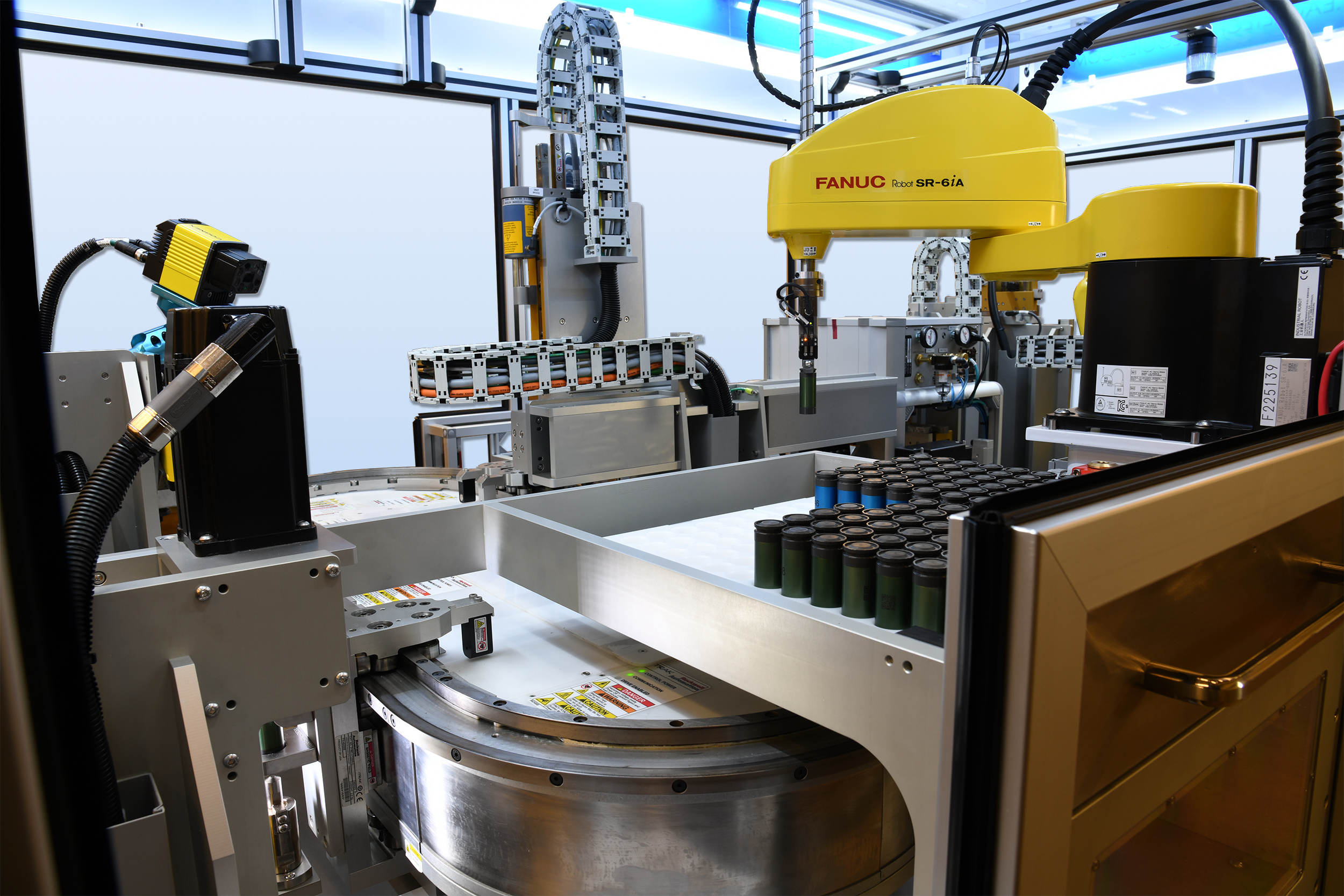Leveraging automation for battery assembly will keep manufacturers on top of climbing demand.
Electric vehicles are poised for a boom. Infrastructure is catching up with consumer demand, and EV technology is improving every day. To take advantage of the industry’s growth, battery manufacturers must be ready to meet the increase in demand. If they can do so, the potential exists for a virtuous cycle: more efficient battery production drives down cost, which decreases the overall price of vehicles, making them accessible to even more consumers.
Financial forecasts are predicting rapid growth in EV-related industries, particularly in battery cell production and battery assembly. Manufacturers will need to move quickly to establish themselves in the market, and must be ready to scale up as it expands. Fortunately, industrial automation provides robust solutions for the growing EV battery production sector that will help companies capitalize. Here’s how.
1. Efficiency gains with faster transport systems.
Plenty of items need to be moved from point to point when assembling EV batteries. Housings need to be transferred to the production line, cells picked and inserted, and the battery pack moved and positioned for cleaning, assembly, testing, and packaging. Automated conveyor belts and autonomous cart systems transport products reliably and swiftly, moving component parts to the production line and collecting finished batteries.
Repetitive tasks like lifting, picking, and positioning are well-established candidates for automation. But advanced transport systems can also move at variable speeds, gaining time while in motion and decelerating the item as it reaches its target location, which compounds the increase in efficiency. These marginal time gains quickly add up to faster production cycles.
2. Precision material handling for every step.
Battery assembly leaves little room for error. Tolerances are tight, and the safety implications for workers and consumers are significant. The equipment on an automated production line is programmed to perform tasks like wire bonding, plasma cleaning, and dispensing adhesives the same way every time. The result is a consistent, high-quality product and a repeatable, modular process—one with minimal risk of straying outside the bounds of heat, pressure, or other safety limits that could damage the finished battery.
3. Safety in production and performance.
Vehicle batteries are hard-working systems, which is why production methods are carefully controlled to avoid damaging any components during assembly. To make sure the completed battery is functional and, more importantly, safe for use, the individual components and the finished product can also undergo multiple automated tests along the production line.
Robotic equipment enables the safer assembly techniques that build EV batteries, like wire bonding and laser welding, while automated electrical testing confirms that the assembled battery works as expected and isn’t leaking electrical current. These tests catch any flaws early in the process, reducing risk downstream and ensuring that the assembled batteries have the longest functional life possible.
4. Quality assurance through traceability.
Tracking the history of a battery’s component parts is important both for ensuring the quality of the finished product, and for analyzing and improving production processes. With this information, manufacturers can verify that each part has completed every processing step and passed every quality and safety check. Traceability data also allows manufacturers to quickly locate and address any issues within the production chain.
Tracking and tracing not just finished batteries, but all the parts that make them up, involves an enormous amount of data. This makes it an ideal task for advanced automation. Vision systems, for example, allow production equipment to confirm the identity of picked components and check for obvious defects. Barcode and RFID scanners can identify parts and update tracking records in real-time, while laser engraving creates permanent markers that will ensure traceability over the lifetime of the battery. Together, these systems can create a complete record of a battery’s production and service history.
5. Adaptability in changing markets.
To stay nimble and respond to changes in demand, manufacturers need to balance process optimization with flexibility. Centralized, intelligent automation systems combined with advanced sensors and IIoT can collect data at multiple points along a production line, helping manufacturers identify areas that are ripe for efficiency gains.
At the same time, robotic equipment and process controllers can be programmed to allow for multiple production modes, creating a variety of products on the same assembly line. Individual modules can even pivot to different types of work by automatically swapping the tool on a robotic arm. This kind of modular design, along with customizable programming, allows manufacturers to optimize their existing production lines while staying ready for the next challenge.
The electric vehicle boom is here. Battery manufacturers can meet the moment with automation.
Battery assembly is a complex and highly technical process with little margin for error—the kind of process where automation shines. The increase in demand for electric vehicles is set to outstrip current battery production, which means that manufacturers will need a strategy for scaling up. Automation can help businesses do more with existing resources, and provide a template for future growth.
At Eagle Technologies, we pride ourselves on our expertise with the latest automation technology, and the creative solutions we bring to growing industries. Whether you’re looking for big data analytics or a fully-automated assembly line, we want to work with you to develop an automation solution that meets your needs. To discuss your business’s automation goals, contact us today.
![]() Connect With Eagle Technologies LinkedIn
Connect With Eagle Technologies LinkedIn
Eagle Technologies, headquarters in Bridgman, MI
Eagle builds the machines that automate manufacturing. From high-tech robotics to advanced product testing capabilities, Eagle offers end-to-end manufacturing solutions for every industry.


